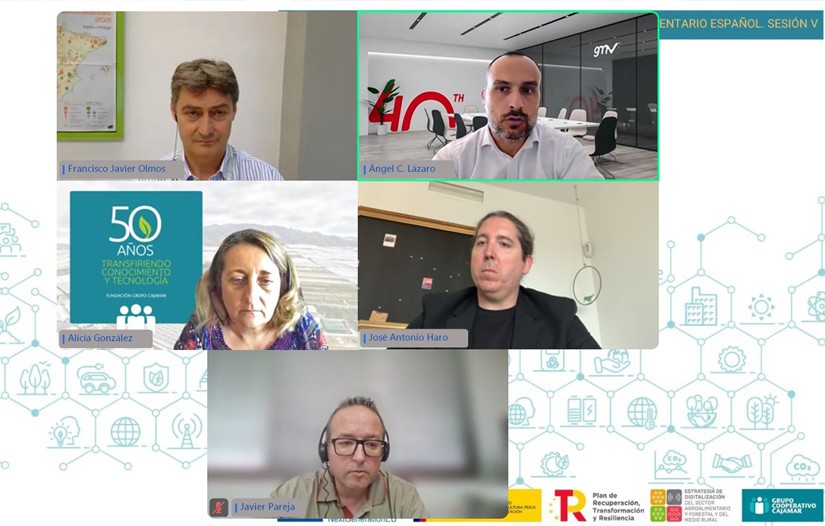GMV participates in digitalization observatory for the agrifood industry, sponsored by Grupo Cajamar and Spain’s Ministry of Agriculture

On June 4th, GMV took part in a new session of the Observatory on Digitalization in the Spanish Agrifood Industry. This is an initiative sponsored by the Spanish Ministry of Agriculture, Fisheries and Food (MAPA), in cooperation with Grupo Cajamar. The aim is to monitor the digital transformation taking place in relation to agriculture and food production, by gathering information about the implementation and penetration of new technologies.
Ángel C. Lázaro, Head of Robotics and Automation for GMV’s Industry sector, was responsible for sharing the company’s technological vision regarding robotization in agribusiness, with a particular focus on the fruit and vegetable subsector. During the discussion, he emphasized that when it comes to fruits and vegetables, robotization is still in an intermediate phase of implementation, with progressive movement beyond the pilot stage towards integration into actual operating environments. This progress is being enabled by technologies such as artificial intelligence, although challenges still remain because of the high levels of variability in the pertinent work environments and the unstructured nature of agricultural field operations.
GMV is actively working to overcome these barriers through its solutions such as uPathWay. This is a scalable platform for managing robotic fleets, which is hardware independent and powered by artificial intelligence. It provides capabilities for operating on uneven terrain, while carrying out tasks such as inspections and application of phytosanitary treatments. These solutions are now being implemented for industrial operations that have high levels of repetition and lower levels of complexity, such as visual inspection and packaging, especially for high-value crops such as berries.
In terms of measures that can be used to speed up this technological transition, GMV advocates innovative business models such as Robotics as a Service (RaaS), public-private collaborations, and effective technology transfer from innovation centers to agribusiness SMEs. He also stressed the strategic role of public administrations in driving this transformation, by providing funding for these technologies and creating policies that can facilitate specialized training and experimentation in real production environments.
Finally, he emphasized that the field of robotics is now at a critical point in relation to the agrifood industry, with a clear trend towards widespread implementation of autonomous solutions, thanks to the convergence of technologies such as AI, 5G, and Physical AI. He said that GMV expects that the next five years will be a key period for the consolidation of robots as useful allies during agricultural and industrial processes, as access to these technologies becomes democratized and they become accessible even for small farming operations.